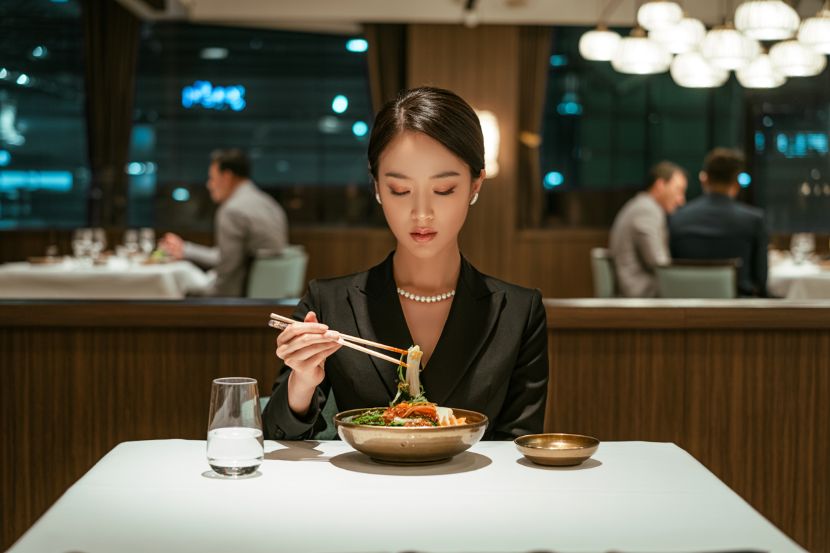Published on
September 6, 2025
Meticulously cultivated over the past decade, South Korea is finding the world waking up to its brilliance as a gastronomic capital. Its food culture, a vibrant mix of tradition and innovation, is no longer a secret, and as culinary travel blossoms in 2025, the country is poised to assert itself as a global culinary leader. A stunning 40 establishments will grace the 2025 MICHELIN Guide for Seoul and Busan, signalling the nation’s readiness to share its culinary artistry on an unrivalled stage. This unprecedented honour firmly elevates South Korea to the upper echelon of worldwide dining, magnetising seasoned epicures as well as curious adventurers from every corner of the planet.
The rise in food tourism has been driven by a unique combination of traditional dishes, innovative modern cuisine, and a growing emphasis on sustainable dining practices. From ancient methods of fermentation to modern plant-based alternatives, South Korea’s dining landscape has become a cultural journey for travellers. With the inclusion of South Korea’s culinary heritage, the MICHELIN Guide confirms the country’s position as a global leader in the food movement, with a variety of restaurants representing the best of traditional Korean food and innovative dining experiences.
A Growing Culinary Destination for Global Travellers
The 2025 MICHELIN Guide highlights a diverse range of dining establishments, offering more than just meals, but also immersive cultural experiences. South Korea’s gastronomic scene offers something for everyone, from high-end dining experiences to traditional temple food and street food. According to a recent survey, 64 percent of travellers cited South Korea’s culinary offerings as their main reason for visiting the country. This surge in interest underscores the role of gastronomy in shaping global travel trends.
A standout in the 2025 edition is Légume, the first MICHELIN-starred vegan restaurant in Seoul and the only such venue in Asia. This marks a significant milestone in plant-based dining, with Légume’s plant-based dishes contributing to the country’s evolving approach to sustainable food practices. With sustainability at the forefront, restaurants like Légume are setting trends for environmentally conscious dining, attracting both locals and visitors eager to experience Korea’s innovative dining culture.
Michelin Stars and Global Recognition for South Korean Cuisine
The inclusion of notable restaurants such as Mingles, which earned three MICHELIN stars, and Escondido, the first-ever Mexican restaurant in Asia to receive a MICHELIN star, shows South Korea’s growing embrace of global culinary influences. Mingles, known for its sophisticated reinterpretations of traditional Korean flavours, has become an essential destination for food lovers worldwide. This is a testament to how South Korean chefs are blending global culinary traditions with their own rich food heritage.
The 2025 MICHELIN Guide also highlights 186 restaurants in Seoul and 48 in Busan, with 29 new entries this year. The diversity and quality of these restaurants not only enhance South Korea’s reputation as a culinary destination but also attract international tourists looking for a more authentic food experience.
Cultural Heritage and Sustainable Dining Practices Lead the Way
South Korea’s food culture is deeply rooted in traditions that go back centuries. The country’s recent inclusion of jang-making (fermented soybean-based sauces) on UNESCO’s Intangible Cultural Heritage list adds to the global recognition of its rich culinary traditions. As food tourism continues to grow, South Korea is ensuring that both heritage and innovation are balanced, offering a dynamic food scene that is constantly evolving. The recent success of its sustainable dining practices has also drawn the attention of the global food community, with many restaurants adopting plant-based options and sustainable sourcing.
Michelin-starred restaurants like Mingles and Escondido have also contributed to the growing awareness of sustainable food practices, where chefs focus on environmentally responsible ingredients and methods. As South Korea continues to lead the charge in innovative dining, it paves the way for a future where food not only excites the senses but also contributes to a sustainable, ethical food system.
South Korea’s Culinary Scene as a Global Travel Draw
South Korea’s food scene keeps evolving, and the 40 Michelin stars that now adorn restaurants in Seoul and Busan illustrate how quickly the country has attained global stature as a dining destination. With worldwide food tourism steadily climbing, Korea has emerged as a showcase, confidently presenting a tapestry that weaves together age-old recipes and contemporary flair. Visitors discover that a meal here transcends flavour: every plate narrates a story of heritage, environmental ethics, and cutting-edge creativity. Cultural refinement sits shoulder-to-shoulder with modern lab techniques in immaculate kitchens, and sustainability is as casually championed as obsessive seasoning. This restless balance of innovation and conservation assures us that Korea’s culinary heartbeat will remain a lodestar for gastronomic travel in the decade ahead, enticing even the most seasoned epicures to return for the unfurling adventure.
